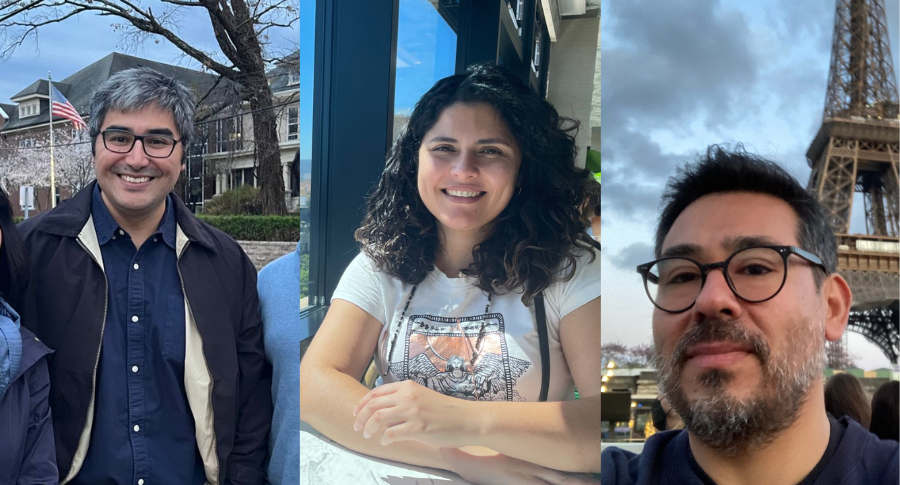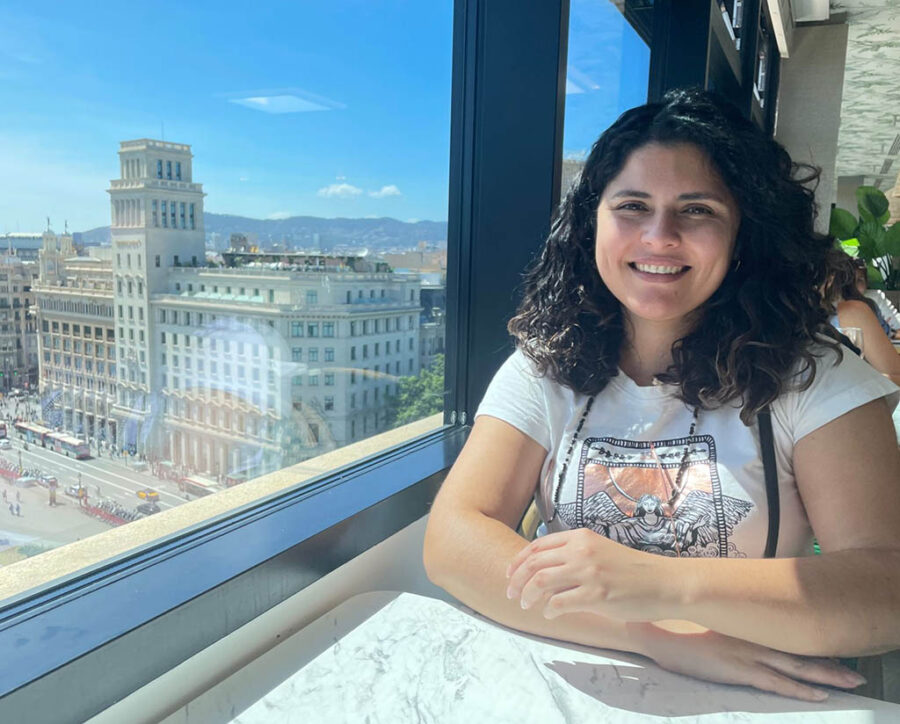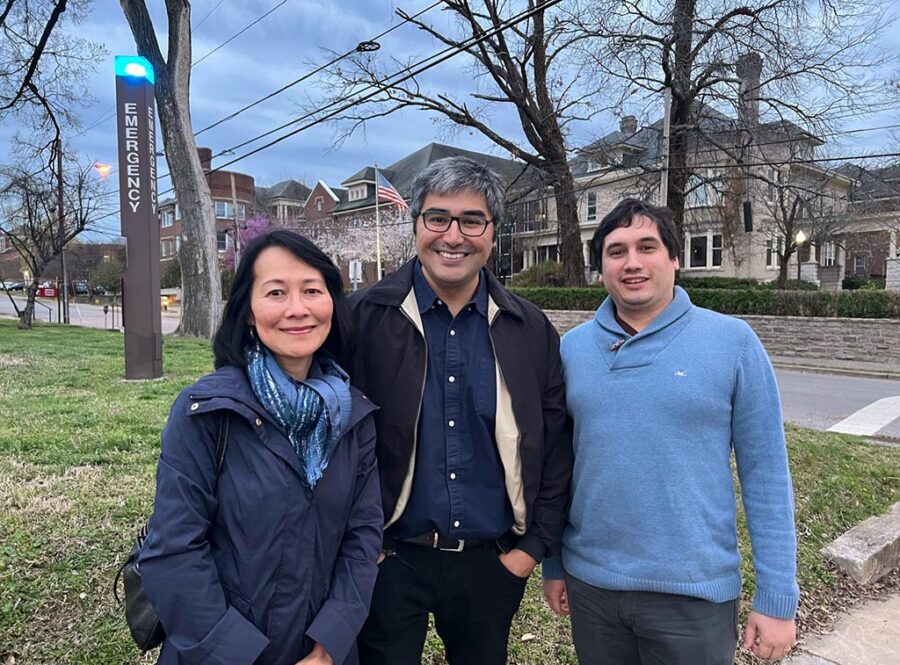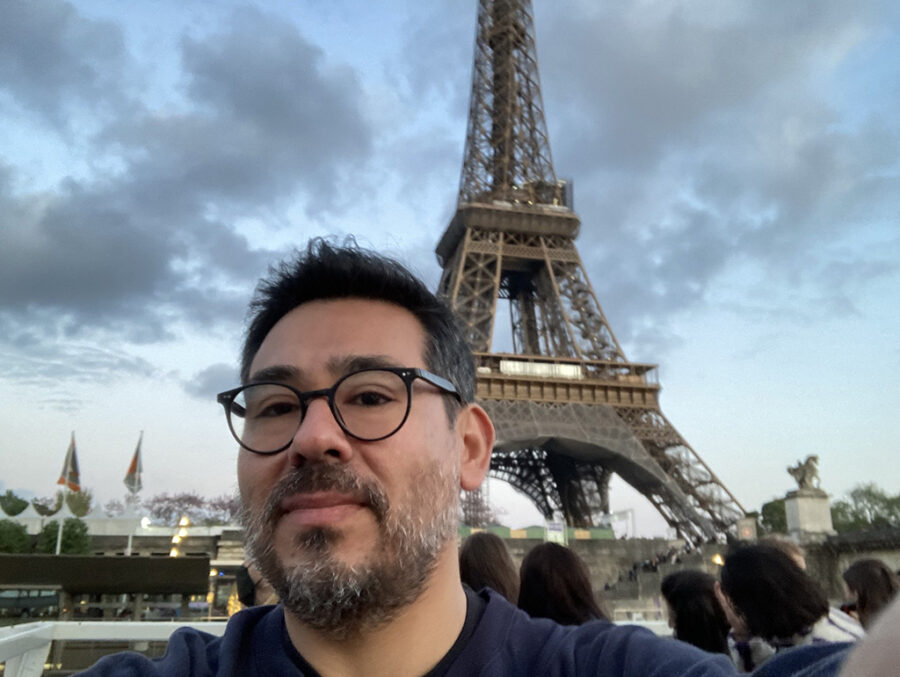UC Education Doctorate students narrate their internships abroad
May 16, 2023
Loreto Abarzúa, Christian Lazcano and Leandro Silva talk about their international experiences, highlighting the possibility of expanding networks and investigative horizons.

One of the foci promoted by the program of PhD in Education of the Pontificia Universidad Católica is that its students develop research with an international perspective. For this, they not only integrate in their thesis commissions to international experts, but also must complete an internship at a prestigious foreign university and present part of your research in an international congress renowned in his field of study.
Valeria Cabello, Head of the Doctoral Program in Education, explains that there are also internships that are extended, which thanks to an academic agreement "They can be developed in a co-supervisory modality with foreign universities, which makes the student have two academics who guide their thesis, one/or at the UC and another/or at the foreign university. The training stay abroad lasts between 6 months and a year, and, fulfilling the requirements of both houses of study, allows them to obtain a double degree of Doctor of Education or in a complementary discipline and that it is directly related to its subject of study”.
The internship in the voice of doctoral students
Examples of the above arehe internships that four doctoral students they currently do. Loreto Abarzúa and Christian Lazcano meet in Barcelona and the United States respectively, and Leandro Silva and Danny LopezFor their part, they are taking an internship at co-guardianship modality in Paris and Australia.
Loreto abarzua says from the University of Barcelona, Spain, that this period has been "a very enriching experience". His stay focuses on learning about innovation experiences in rural schools, since his thesis deals with "about inclusion in rural schools, particularly in the way in which the relationship they have schools with their community and families it can further strengthen the inclusion processes in these types of institutions.”

"It's very interesting to see that some of the same difficulties that we have in Chile are also expressed here in terms of the relationship with the family, and also see the spaces for innovation and the projects that these schools have put together to alleviate this lack of participation. That is something that maybe we lack and something of what I came to learn to be able to take back to the schools with which I have been working on my thesis”, says Abarzúa.
Christian Lazcano, intern in Nashville, Vanderbilt University, USA, highlights the flexibility provided by the PhD program at UC. “Thanks to the different optional subjects that it has, allows you to build a mesh that fits your research question. Within that same training is the internship, which is an important experience in the learning stage. It allows us to connect with other realities in terms of research”, he points out.
So also value the support. "The doctoral program gives all the help to be able to make this internship process in the best possible wayFor example, with support to apply for different types of funds. It is not an instance in which one is left alone, there is more than one way in which the program can guide and help you to meet this stage. I have been able to discover here some new analysis techniques that I had not contemplated before and that will help me in future investigations”.

Leandro Silva develops his internship in co-tutelage at the University of Paris, France, and his research deals with the Emotional experience of the work of academic teacher educators. The support of the Doctorate in Education UC has been key. "I have counted from the first moment with all the support of the program management and its team for the processing of the co-tutelage agreement, in addition to all the help to establish an effective co-direction work between my thesis tutors, Chilean and French. The same has happened with the funding scholarships or the management of other benefits”, he mentions.
“France is experiencing a very important socio-political moment that resembles, in some dimensions, the social conflicts that we have experienced in Chile regarding the pension reform and the unequal distribution of wealth. All this has been very interesting to witness because it is relevantly linked to the work experience and its reward., which is my broad research topic”, he adds.

The opportunity to weave networks
An element that the doctoral students of their internships highlight is the possibility of expanding their networks and research horizons abroad, meeting different people who develop their research topic and research methodologies.
In her internship, says Loreto Abarzúa, she has had the opportunity to network with other doctoral students in the area. "There may be future collaborations from this, even though we work in different fields. That's something extremely positive."
“I have met people who have been able to help me in my project, trying to create networks with different PhD students right here, or with some teachers, and meet what it is like to research collaboratively between institutions. That is something that is very important”, complements Christian Lazcano.
PhD student Leandro Silva adds that he has been able to join a laboratory of international prestige in sociological research, and thus “work with colleagues and professors who carry out cutting-edge research in the discipline I am dealing with”. This has allowed him to get to know new epistemologies and research methods, as well as "to delve into the dimensions of my work through feedback from other specialists in the area. Undoubtedly, another great contribution has been the formation of professional networks with other foreign colleagues who inquire about subjective dimensions of work, education and other matters”, concludes Silva.
To learn more about the internships, networks, and co-tutelage that take place in the UC Education Doctorate program, you can click on this link. The next period of program admission It will open on August 15 and will run until September 15.
